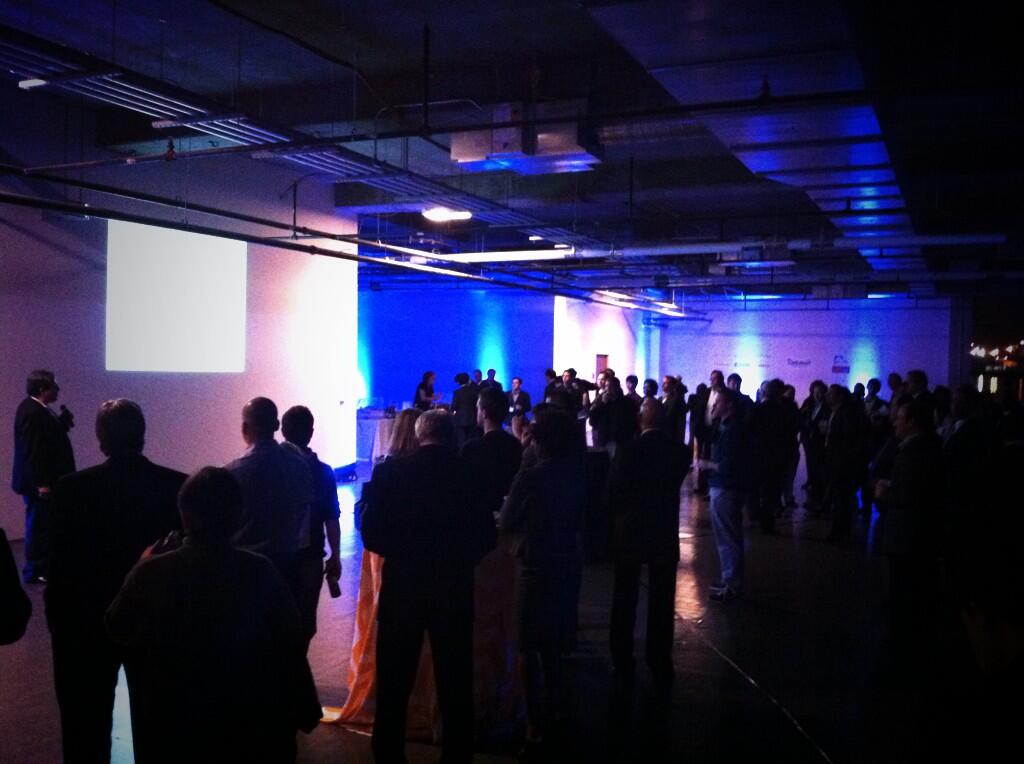Nine startups, including five from Baltimore city, in the inaugural class of the DreamIt Health Baltimore accelerator for health IT startups were introduced during a kickoff event Friday.
Find the list of the startups below.
DreamIt Health will shepherd early-stage healthcare startups through a four-month program, providing them with stipends of up to $50,000 in addition to professional services, mentoring and programming. In exchange, DreamIt Health takes 8 percent in common stock of each startup that completes its program. Startups will be working from Bond Street Wharf in Fells Point, a Johns Hopkins University property that DreamIt is leasing from the university.
DreamIt is an accelerator program founded in Philadelphia with programs also in NYC, Austin and Israel. In addition to the healthcare vertical, the program has a more general program in those other markets.
Overseeing DreamIt Health Baltimore as managing director is Jason Hardebeck, the executive director of gb.tc. As Technical.ly Baltimore reported, Hardebeck will retain his directorship of gb.tc while serving as DreamIt Health’s managing director.
During the kickoff party Friday, held at the Morgan Stanley office in Fells Point, Mayor Stephanie Rawlings-Blake said she hoped the startups going through DreamIt’s program will choose to remain in Baltimore.
“This is the type of vitality around the health sector that I knew was possible in Baltimore,” she said. “Hopefully … you’ll stay in Baltimore.”
It was also announced that healthcare giant Kaiser Permanente has signed on as another partner in the DreamIt Health Baltimore program, along with the Johns Hopkins University, BioHealth Innovation, and several others.
The first DreamIt Health Baltimore class (from the press release):
- Aegle (Baltimore): Wearable biometric devices
- Avhana (Baltimore): Next-generation clinical decision support for the electronic health record
- Cognuse (Talinn, Estonia): Cognitive rehabilitation of stroke and traumatic brain injury patients through mobile games
- EMOCHA (Baltimore): Mobile capture of data for medication adherence and clinical trials
- Protenus (Baltimore): Digital management of patient consent and other administrative workflows
- Respi (Athens, Greece): Smartphone-based spirometry and respiratory data platform
- Patient Feed (Pittsburgh and New York City): Collaboration tool for inpatient care
- Phobious (Barcelona, Spain): Treatment of behavioral health issues through mobile, augmented reality
- The Smartphone Physical (Baltimore): Integration and distribution of clinically relevant mobile health devices
Before you go...
Please consider supporting Technical.ly to keep our independent journalism strong. Unlike most business-focused media outlets, we don’t have a paywall. Instead, we count on your personal and organizational support.
3 ways to support our work:- Contribute to the Journalism Fund. Charitable giving ensures our information remains free and accessible for residents to discover workforce programs and entrepreneurship pathways. This includes philanthropic grants and individual tax-deductible donations from readers like you.
- Use our Preferred Partners. Our directory of vetted providers offers high-quality recommendations for services our readers need, and each referral supports our journalism.
- Use our services. If you need entrepreneurs and tech leaders to buy your services, are seeking technologists to hire or want more professionals to know about your ecosystem, Technical.ly has the biggest and most engaged audience in the mid-Atlantic. We help companies tell their stories and answer big questions to meet and serve our community.
Join our growing Slack community
Join 5,000 tech professionals and entrepreneurs in our community Slack today!





